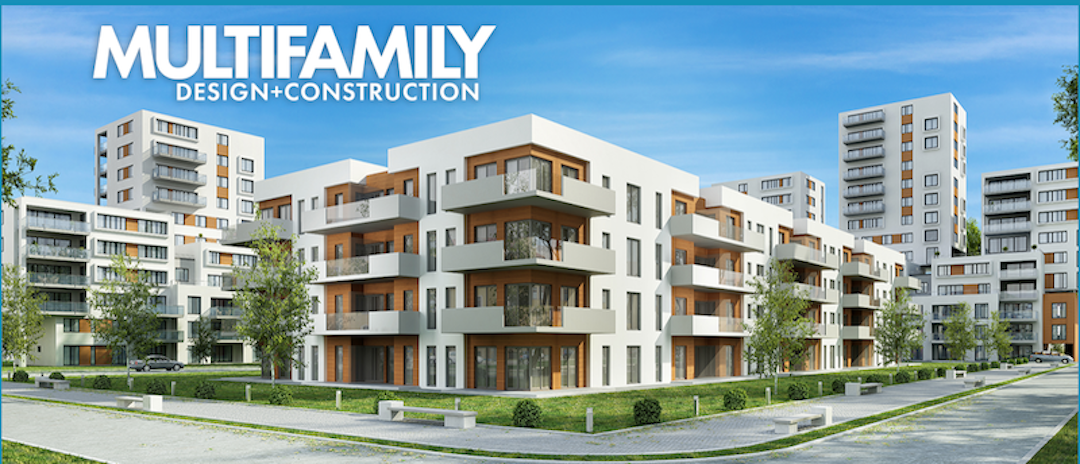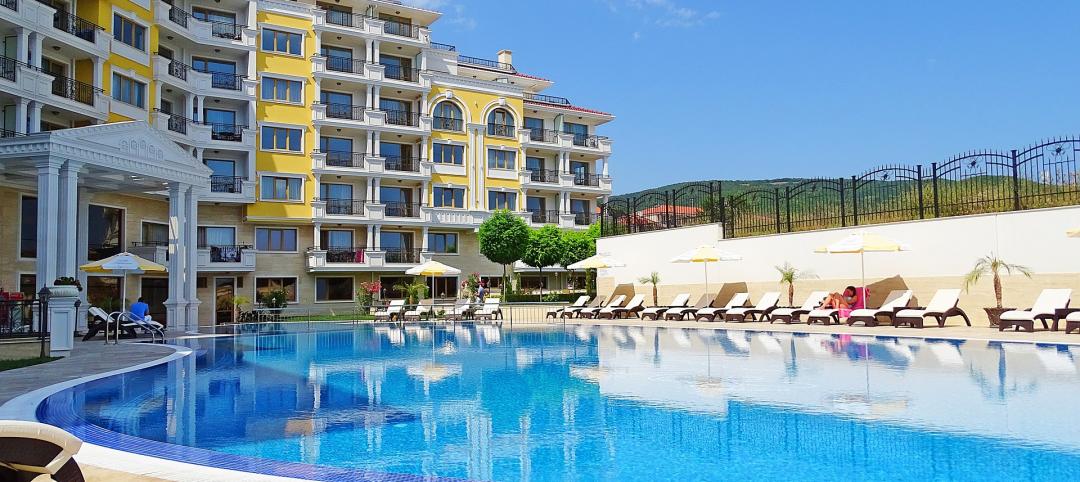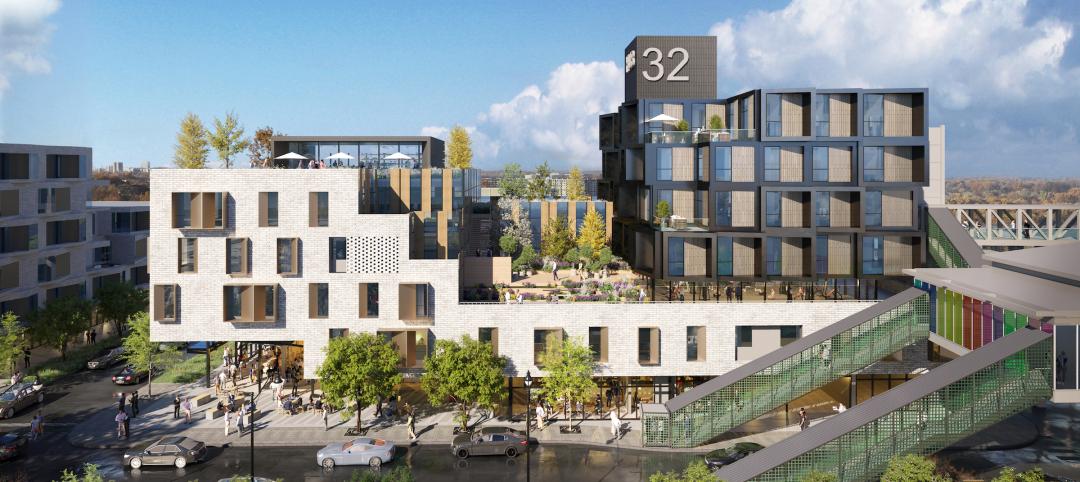Early results from the 2021 “Multifamily Amenities Survey” from MULTIFAMILY Design+Construction show that the majority of respondents – multifamily developers, apartment operators, architects, contractors, and others in the apartment/condominium sector – either modified their amenities, added new ones, implemented amenity innovations, or took out some amenities from their customary offerings – all in response to the Covid-19 pandemic.
“We’re taking Covid seriously in all aspects,” said one respondent. Another said, “We’re rethinking and reimagining amenities packages to be safer and healthier.”
Multifamily housing owner/operators reported having to close recreation facilities due to the pandemic – a sore point for many residents who love their fitness centers, pools, and hospitality areas. One developer noted the burden of “increased cost for cleaning/maintenance.” Another said their company was able to reopen its swimming pools after temporary closure, but with reduced capacity. Apartment property managers have had to temporarily close dog parks, outdoor grilles and kitchens, and children’s playgrounds, depending on local Covid directives.
But a significant chunk of respondents said they’re sticking with what they’ve always provided. As one respondent put it, “We have not cut back the usual high-quality amenities as we feel the long view will be back.”
Yet many respondents expressed concerns about the long-term effect of the Covid-19 pandemic on their properties in the future. “Since Covid, customers want more from their home,” said a respondent. “They need more places for children to learn and more places for them to work from home. This creates a need for more technological advancement.”
GET ALL THE DATA FROM OUR 3 AMENITIES SURVEYS
This is the 3rd biannual Amenities Survey sponsored by MULTIFAMILY Design+Construction and its sibling publication, Building Design+Construction. This year's survey measures 124 amenities data points. In the final report, the results of the 2021 survey will be compared to the data from the 2017 and 2019 Amenities Surveys.
The survey is open to Multifamily developers, property managers, architects/designers, and builder/contractors. Those who complete the survey will receive a comprehensive PDF report comparing the data from all 3 surveys before anyone else gets the data. (Non-respondents will have wait for publication and register online to get the PDF report.) Click here to get started.
SPACE PLANNING AND ALLOCATION ON THEIR MINDS
Responses from just the first week show that multifamily real estate, design, and construction professionals are struggling with how to deal with planning and space allocation as a result of the pandemic.
“We have added work-from-home spaces within unit plans as well as additional small gathering spaces in amenity areas,” said one respondent. Another said “individual work pod rooms for residents working from home but don't want to be in their residential units” was a priority.
Yet another said “the latest client request” has been to introduce a shared work space room with individual work pods and a lounge area with coffee/drink station.
“We moved furniture and equipment to meet social distancing requirements,” a respondent replied. Another added acrylic screens at reception desks in its properties.
One respondent’s company is “paying more attention to materials and furniture, fixtures, and other products that are easily cleanable.” Another has been installing air purification systems as a retrofit in amenity spaces and elevator areas.
BIGGEST CONCERN: DEALING WITH WORK FROM HOME
Many respondents reported efforts to respond to the skyrocketing work-from-home demand, such as:
- In-residence work nooks
- Privatized work/study spaces on each floor to serve work from home
- Outdoor workstations
- Larger apartment unit sizes to accommodate work from home
- Isolation rooms for shared living units
Others have installed outdoor fitness options, placed sanitizing stations around their communities, and added touchless access controls. ICovid instructional signage in shared areas, third-party resident virtual events, and hands-free entry doors at the clubhouse and on fixtures in common area bathrooms were among other actions taken by respondents.
One developer, whose current projects were still in the design development phase, was able to change the design to add exterior balconies and in-home work nooks for every apartment.
One developer was considering “multiple smaller social spaces rather than one large gathering area, and more individual small-group breakout areas.” Another said future developments would “disperse amenities throughout the project rather than in one mega-amenity,” and put more investment in outdoor spaces.
As one respondent concluded, “We believe many [occupiers] will continue to work from home at least part time after the pandemic, so we’re recommending more communal working space, such as coworking with private spaces."
COVID-RELATED AMENITIES NOT THE WHOLE STORY
Many respondents had introduced other new offerings in their amenity packages in the last two years, notably:
- Rooftop track/walking path
- Free Wi-Fi
- Dog-friendly streetscapes
- Rooftop off-leash dog park
- Picnic gazebo
- Rock climbing
- Pickleball courts (see “Pickleball, anyone?”)
Among the more interesting and unusual amenity upgrades cited:
- Senior in-house medical space
- Hydroponic farm/aquaculture
- Food truck
- Circadian lighting
Individual developments added art spaces, galleries, music practice rooms, and chess tables.
TECHNOLOGY IMPROVEMENTS OF INTEREST, TOO
Some survey respondents said they were “addressing the need to provide increased electrical power needs to individual units" – perhaps yet another response to the work-from-home phenomenon.
Others added extra electrical for charging cellphones and laptops outside, as residents choose to work outdoors as much as possible.
Several multifamily housing firms also added electric vehicle charging outlets in their garages.
Some property managers apparently were keen to make renters more aware of their utility usage, by installing water and electricity meters in individual living units.
Security upgrades and better package management systems were also on the list of technological improvements.
DON’T WAIT – START THE SURVEY NOW!
The survey is open for your input. Click here to get started.
Related Stories
Multifamily Housing | Mar 14, 2023
Multifamily housing rent rates remain flat in February 2023
Multifamily housing asking rents remained the same for a second straight month in February 2023, at a national average rate of $1,702, according to the new National Multifamily Report from Yardi Matrix. As the economy continues to adjust in the post-pandemic period, year-over-year growth continued its ongoing decline.
Student Housing | Mar 13, 2023
University of Oklahoma, Missouri S&T add storm-safe spaces in student housing buildings for tornado protection
More universities are incorporating reinforced rooms in student housing designs to provide an extra layer of protection for students. Storm shelters have been included in recent KWK Architects-designed university projects in the Great Plains where there is a high incidence of tornadoes. Projects include Headington and Dunham Residential Colleges at the University of Oklahoma and the University Commons residential complex at Missouri S&T.
Mixed-Use | Mar 11, 2023
Austin mixed-use development will provide two million sf of office, retail, and residential space
In Austin, Texas, the seven-building East Riverside Gateway complex will provide a mixed-use community next to the city’s planned Blue Line light rail, which will connect the Austin Bergstrom International Airport with downtown Austin. Planned and designed by Steinberg Hart, the development will include over 2 million sf of office, retail, and residential space, as well as amenities, such as a large park, that are intended to draw tech workers and young families.
Multifamily Housing | Mar 7, 2023
Multifamily housing development in Chicago takes design inspiration from patchwork and quilting
HUB 32, a 65-unit multifamily housing development, will provide affordable housing and community amenities in Chicago’s Garfield Park neighborhood. Brooks + Scarpa’s recently unveiled design takes inspiration from the American tradition of patchwork and quilting.
Adaptive Reuse | Mar 5, 2023
Pittsburgh offers funds for office-to-residential conversions
The City of Pittsburgh’s redevelopment agency is accepting applications for funding from developers on projects to convert office buildings into affordable housing. The city’s goals are to improve downtown vitality, make better use of underutilized and vacant commercial office space, and alleviate a housing shortage.
Student Housing | Mar 5, 2023
Calif. governor Gavin Newsom seeks to reform environmental law used to block student housing
California Gov. Gavin Newsom wants to reform a landmark state environmental law that he says was weaponized by wealthy homeowners to block badly needed housing for students at the University of California, Berkeley.
Green Renovation | Mar 5, 2023
Dept. of Energy offers $22 million for energy efficiency and building electrification upgrades
The Buildings Upgrade Prize (Buildings UP) sponsored by the U.S. Department of Energy is offering more than $22 million in cash prizes and technical assistance to teams across America. Prize recipients will be selected based on their ideas to accelerate widespread, equitable energy efficiency and building electrification upgrades.
AEC Innovators | Mar 3, 2023
Meet BD+C's 2023 AEC Innovators
More than ever, AEC firms and their suppliers are wedding innovation with corporate responsibility. How they are addressing climate change usually gets the headlines. But as the following articles in our AEC Innovators package chronicle, companies are attempting to make an impact as well on the integrity of their supply chains, the reduction of construction waste, and answering calls for more affordable housing and homeless shelters. As often as not, these companies are partnering with municipalities and nonprofit interest groups to help guide their production.
Modular Building | Mar 3, 2023
Pallet Shelter is fighting homelessness, one person and modular pod at a time
Everett, Wash.-based Pallet Inc. helped the City of Burlington, Vt., turn a municipal parking lot into an emergency shelter community, complete with 30 modular “sleeping cabins” for the homeless.
Multifamily Housing | Mar 1, 2023
Multifamily construction startup Cassette takes a different approach to modular building
Prefabricated modular design and construction have made notable inroads into such sectors as industrial, residential, hospitality and, more recently, office and healthcare. But Dafna Kaplan thinks that what’s held back the modular building industry from even greater market penetration has been suppliers’ insistence that they do everything: design, manufacture, logistics, land prep, assembly, even onsite construction. Kaplan is CEO and Founder of Cassette, a Los Angeles-based modular building startup.

















